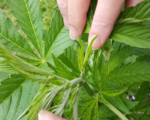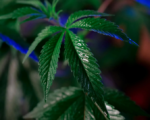Congress just slammed the door on a massive loophole that’s fueled a booming industry of intoxicating hemp products. With the U.S. Senate passing a key funding bill to reopen the government, a ban on hemp-derived THC is set to hit in late 2026, shaking up businesses nationwide. But hold on, companies get a one-year grace period to pivot and survive.
The Senate approved the measure on November 11, 2025, tucked into a package of government funding bills. This closes a gap from the 2018 Farm Bill that let hemp products with low THC levels flood the market, including gummies, drinks, and other items that get people high. Under the old rules, hemp stayed legal if it had less than 0.3% delta-9 THC by dry weight. Now, that’s changing big time.
The fresh definition caps total THC at just 0.4 milligrams per product container. It also bans any intoxicating stuff made by chemically tweaking hemp cannabinoids. That means many popular hemp-derived products, worth about $30 billion in sales, could become illegal controlled substances by late 2026. Lawmakers say this protects consumers and supports the regulated cannabis sector, which has pushed for years to shut down these unregulated rivals.
Pressure came from states and the marijuana industry, frustrated by intoxicating hemp items sold freely in gas stations and online. The 2018 Farm Bill sparked this wild growth, but critics called it a loophole that dodged strict drug laws.
How Businesses Can Use the One-Year Grace Period
Good news for hemp companies: the law doesn’t kick in right away. It offers a 365-day off-ramp starting from when the bill becomes law, giving firms until late 2026 to adjust. This buffer lets manufacturers, sellers, and farmers rethink their operations without shutting down overnight.
For instance, some businesses might switch to non-intoxicating products like CBD oils or industrial hemp for textiles and food. Others could pivot to the legal cannabis market in states where it’s allowed. Experts urge companies to review contracts now, as changes in hemp’s legal status could trigger force majeure clauses in supply deals. That means events like this law shift might let parties back out or renegotiate without penalties.
Loans, leases, and insurance policies tied to the old hemp rules might also need updates. If a business relies on hemp that’s now deemed illegal, it could breach covenants and lead to defaults. Hemp farmers, with over 10,000 licenses nationwide, face tough choices too. Many grew crops under the 2018 rules, but this could bankrupt them if they can’t adapt fast.
One key tip: start auditing your product lines today. Test for THC levels and explore reformulations that stay under the new caps.

Impacts on Farmers, Retailers, and Consumers
This crackdown hits hard across the board. Farmers who bet big on hemp after 2018 now stare at potential losses. The industry boomed because hemp was easy to grow and sell without the red tape of marijuana. But with intoxicating products off the table, demand might crash for certain crops.
Retailers selling these items in corner stores or online could lose big revenue streams. In states like Illinois and Florida, where hemp markets topped billions, business owners call it devastating. One Illinois group said it feels unnecessary and cruel, wiping out jobs and investments.
Consumers who turned to hemp-derived THC for affordable highs might shift to regulated cannabis or go without. Prices could rise as supply shrinks, and safety concerns grow if underground markets fill the void.
Here’s a quick look at who feels the pain:
- Farmers: Risk bankruptcy if crops no longer qualify as legal hemp.
- Manufacturers: Must reformulate or pivot to non-intoxicating goods.
- Retailers: Face empty shelves and lost sales in a $30 billion market.
- Consumers: Could see fewer options and higher costs for similar effects.
On the flip side, the regulated marijuana industry cheers this as a win, leveling the playing field against cheaper, unregulated competitors.
Challenges and Legal Hurdles Ahead
Not everyone agrees this is smooth sailing. Hemp advocates argue the changes go too far, potentially killing off 95% of the industry. They point to benefits like CBD for health issues, which might still survive if products avoid detectable THC.
Legal fights could pop up. Some companies might sue, claiming the new rules overstep or hurt interstate commerce. States with their own hemp laws add another layer some might keep looser rules, but federal law trumps that for controlled substances.
Data from recent reports shows the hemp market exploded post-2018, with sales jumping from niche to mainstream. A 2025 study by MJBizDaily estimated the intoxicating hemp segment alone at billions, driven by delta-8 and similar compounds. This ban aims to rein that in, but at what cost?
Businesses should watch for guidance from agencies like the FDA and USDA, which will enforce the new standards. Planning ahead could mean the difference between thriving and folding.
As this unfolds, the hemp world braces for a major shake-up that could reshape agriculture and consumer choices for years. It highlights the ongoing tug-of-war between innovation, regulation, and public safety in the cannabis space.
Maria Garcia is an award-winning author who excels in creating engaging cannabis-centric articles that captivate audiences. Her versatile writing style allows her to cover a wide range of topics within the cannabis space, from advocacy and social justice to product reviews and lifestyle features. Maria’s dedication to promoting education and awareness about cannabis shines through in her thoughtfully curated content that resonates with both seasoned enthusiasts and newcomers alike.








